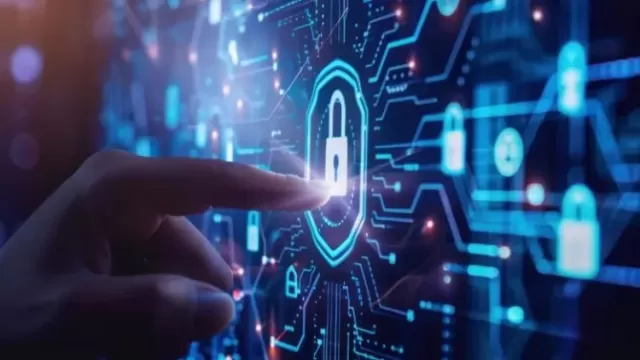Digital Certificates in PKI and Their Working Mechanisms

Fraud rates on the Internet are rising, threats from cyberspace are lurking, data is being hacked, and phishing websites are deceiving people. In 2024, more than 422 million people will be victims of data breaches.
Digital certificates secure data. They are the inevitable tool of public key infrastructure (PKI), which secures emails, websites, mobiles, and computer programs.
Without certificates, attackers can easily pretend to be secure pages and steal confidential information. Therefore, you must understand these certificates and how they are implemented. Knowing this makes you secure enough in this internet-connected society.

Therefore, explore how these certificates function and why they are essential for online security.
What Is A Digital Certificate?
A digital certificate is an electronic document that verifies the identity of an entity (such as a person, organization, or device) and binds it to a public key. It's like a digital ID card that confirms the entity's identity and ensures secure communication over the internet.
Digital certificates are typically issued by a trusted third-party organization called a Certificate Authority (CA) and contain information such as:
1. Subject's identity: The entity's name, organization, and other identifying details.
2. Public key: The entity's public key, which is used for encryption and verification.
3. Issuer's identity: The CA's identity, which verifies the certificate's authenticity.
4. Validity period: The certificate's expiration date and time.
5. Serial number: A unique identifier for the certificate.
Digital certificates are used in various applications, including:
1. Secure Web Browsing (HTTPS): To verify the identity of websites and ensure secure communication.
2. Email Encryption: To secure email communications and verify the sender's identity.
3. Virtual Private Networks (VPNs): To authenticate users and devices.
4. Software Signing: To verify the authenticity and integrity of software.
By using digital certificates, entities can establish trust and secure communication over the internet, protecting against impersonation, eavesdropping, and other security threats.
How Does a Digital Certificate Work?
A digital certificate works by using public key cryptography to verify the identity of an entity and ensure secure communication. When you click a website, your browser will confirm the website’s digital certificate. The operation confirms whether the website is original or an imposter website stealing away personal information. A digital certificate has essential details, including the website’s public key, certificate authority details, and the certificate’s expiry time.

Moreover, when your browser has approved the certificate, it opens an encrypted connection with the website. The connection uses encryption, so any data sent, including passwords or cards, remains encrypted so hackers cannot interpret them. An SSL/TLS handshake establishes an encrypted data transfer channel through this process.
By using digital certificates, entities can establish trust and secure communication over the internet, protecting against various security threats.
Why Are Digital Certificates Important?
Digital certificates protect you from many threats. If you visit an active website with an active digital certificate, you are assured that your details are protected. The system lets you handle daily tasks without exposing your information to hackers.
Without digital certificates, it would be easy for hackers to build imposter websites that appear just like the original. You may reveal away your password details alongside your personal details, unaware you are visiting an imposter website. Digital certificates are, therefore, very essential if you want to protect your data from attackers.
Additionally, digital certificates also play an essential role in anonymity. Digital certificates confirm that any data you send via the website gets encrypted so that it only gets accessed by the targeted recipient. The encryption keeps out any spy attempts by other parties.
Components of Digital Certificate
Components of digital certificates are many, playing various functions. The essential elements of a digital certificate are:
- Public Key: It encrypts data sent to the certificate holder. It ensures only the recipient can decrypt data using their private key.
- Private Key: The certificate holder keeps the private key secret. It decrypts data encrypted using the corresponding public key.
- Issuer Information: It indicates the certificate issuer (Certificate Authority, or CA) so that the certificate is authentic.
- Certificate Validity: Every certificate has an expiration period, beyond which it loses effectiveness. It maintains the up-to-date security standards.
- Digital Signature: The certificate receives digital authentication from the issuer through their private key signature. The signature from the trusted authority serves to validate that the certificate originated from an authentic source.
How Do Digital Certificates Relate to Public Key Infrastructure (PKI)?
Public Key Infrastructure relies on digital certificates to function as an encryption-based system that protects web data exchange. PKI employs both hardware and software, using both the public and private keys to decrypt and encrypt data.
With PKI, the public keys are accessible to everyone, while private keys remain confidential. The encryption process requires the public key while the decryption process depends on the private key. Digital certificates act as identity links between public keys and their corresponding entities to verify the correct association of keys to their owners.
PKI also employs certificate authorities (CAs), well-known entities that issue digital certificates. CAs verify the identity of the certificate holder before awarding them one. The verification system establishes additional trust through secure online connections.
Types of Digital Certificates
There are various types of digital certificates. Some of the common are:
- Domain Validated (DV) Certificates: These are the basic types. They check for ownership of the domain only.
- Organization Validated (OV) Certificates: These verify the organization’s identity behind the domain, offering greater assurance over DV certificates.
- Extended Validation (EV) Certificates: These are the highest level of validation. They offer extensive scrutiny of the organization and display an extreme level of security and a green address bar in many browsers.
Other Types of Digital Certificates
- Email Certificates: These certificates encrypt and authenticate email communications, verifying the sender's identity and ensuring the email hasn't been altered.
- Document Signing Certificates: These certificates digitally sign electronic documents, verifying the signer's identity and ensuring the document's authenticity and integrity.
- IoT Certificates: These certificates secure communication between IoT devices and cloud servers, protecting data transmission and preventing unauthorized access.
- Certificate Authority (CA) Certificates: These certificates validate the CA's identity and public key, enabling others to verify the certificates issued by the CA.
- Object-Signing Certificates: These certificates digitally sign objects, such as code or documents, to validate their integrity and authenticity.
Conclusion
Digital certificates are required to protect your online communications and transactions. They are a key part of Public Key Infrastructure (PKI), which protects your information by encrypting it.
Without digital certificates, you would be unable to tell if a site was secure, exposing your personal information. By verifying the identities of websites and encrypting data, digital certificates keep your information private and secure while browsing the internet.
So, the next time you go to a site and see the padlock symbol in your browser, realize that it’s a guarantee that the site is using a digital certificate to protect your information. This small but precious tool keeps your online usage free from unauthorized sight.
In summary, digital certificates are a crucial component of online security, enabling secure communication, authentication, and trust in the digital world.
Disclaimer: The content provided on this website is for informational and educational purposes only. We do not promote, endorse, or encourage any form of illegal betting or gambling. Readers are advised to check the legal status of betting and gambling in their respective jurisdictions before engaging in any activities. It may be legal in certain regions, but it is the your responsibility to ensure compliance with local laws. We are not liable for any legal or financial consequences arising from the use of this information.










Give Your Feedback